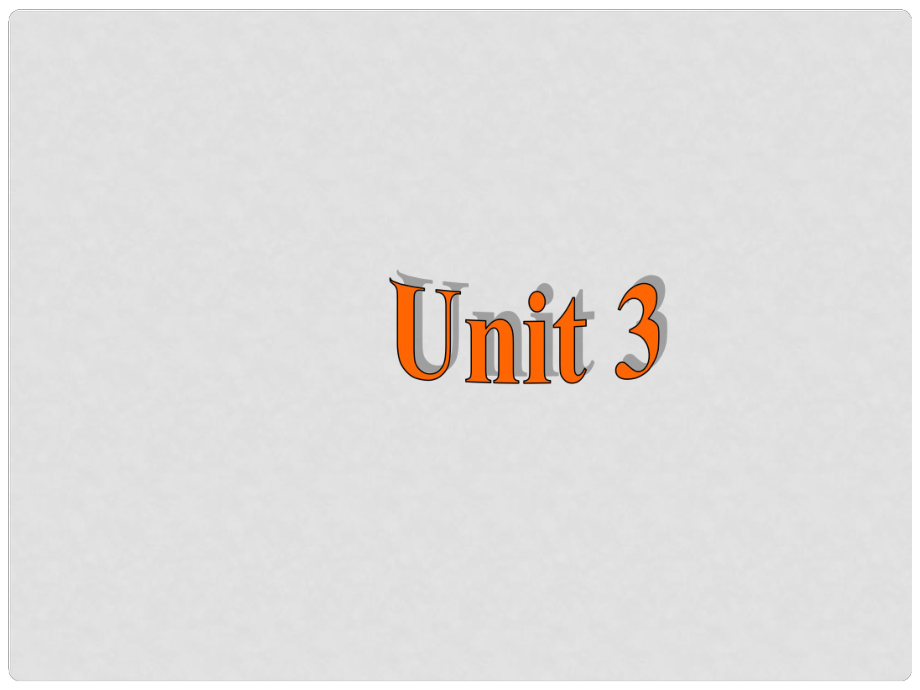《陜西省神木縣大保當(dāng)初級(jí)中學(xué)七年級(jí)英語下冊(cè) Unit 3 Unit 3 How do you get to school課件2 (新版)人教新目標(biāo)版》由會(huì)員分享���,可在線閱讀����,更多相關(guān)《陜西省神木縣大保當(dāng)初級(jí)中學(xué)七年級(jí)英語下冊(cè) Unit 3 Unit 3 How do you get to school課件2 (新版)人教新目標(biāo)版(35頁珍藏版)》請(qǐng)?jiān)谘b配圖網(wǎng)上搜索���。
1����、ride a bike (go by bike)take the bus (go by bus)take the train (go by train)take the car(go by car)take the subway(go by subway)walk / go on foottake the plane / go by planebus stopbus stationsubway stationtrain station Match the words with the picture.1. _ bus stop 3. _ bus station2. _ train statio
2�����、n 4. _ subway stationbadc1aA: How do you get to school?B: Well, I ride my bike to the subway station. Then I take the subway.1bTell your partner how you get to school. Imagine you use two types of transportation.bikecar bus trainplanesubway Listen and check () the things that Mary wants to know? Mar
3�、y wants to know where Bob lives. how far he lives from his grandparents home. how he gets to his grandparents home. how long it takes to get to his grandparents home. what he thinks of the trip. 1c2LISTEN AGAIN. HOW DOES BOB GET TO HIS GRANDPARENTS HOME? CHECK () 1 OR 2. 1d11eTalk about how Bob gets
4、 to his grandparents home.A: HOW DOES GRANDPA GET TO THE PARK?B: FIRST, HE TO C: NEXT, HE TO D: FINALLY HE To get to the park, first grandpa rides his bike to the subway station. Next he takes the subway to the bus station. Finally he gets to the park. A: HOW DOES NINA GO TO THE LIBRARY?B: FIRST, SH
5����、ETOC: NEXT, SHETOD: THEN SHE To go to the library, first Nina to . Next she to Then she boat n.小船小船river n. 河;江河����;江bridge n.橋橋village n.村莊村莊; 村鎮(zhèn)村鎮(zhèn)villager n.村民村民ropeway n.索道索道dream n. 夢(mèng)想��;睡夢(mèng)夢(mèng)想����;睡夢(mèng)v. 做夢(mèng)做夢(mèng)between prep.介于介于之間之間 100 分分leave v.離開離開afraid adj.害怕害怕;畏懼畏懼 many = lots ofadj.&pron. 許多許多cross v.橫過
6���、橫過;越過越過2aLook at the picture and title below. Guess what the passage is about.Crossing the River to SchoolHow do students go to school? 2bRead the passage and answer the questions.How does Liang ling go to school every day?_He goes on a ropeway to cross the river to school. 1. How do the students in
7��、 the village go to school? 2. Why do they go to school like this? 3. Does the boy like this school? Why? 4. Whats the villagers dream? Do you think their dream can come true? Why or why not?1. 細(xì)讀每個(gè)問題���,確定每句話的意思���。細(xì)讀每個(gè)問題����,確定每句話的意思����。2. 帶著問題讀短文,在短文中尋找相關(guān)信帶著問題讀短文�,在短文中尋找相關(guān)信息����,確定問題回答的依據(jù)�。息,確定問題回答的依據(jù)��。3. 找到答題依據(jù)后�����,再根據(jù)
8�����、問題是一般疑找到答題依據(jù)后����,再根據(jù)問題是一般疑問句還是特殊疑問句來確定如何回答。問句還是特殊疑問句來確定如何回答�。4. 最后,再讀一遍課文���,檢查一下答案正最后��,再讀一遍課文�����,檢查一下答案正確性����。確性。1. They go on a ropeway to cross the river to school. 2. Because there is a big river their school and the village. Theres no bridge and the river runs too quickly for boats. 3. Yes, he does. He loves
9��、 to play with his classmates. He loves his teacher.4. Their dream is to have a bridge. Yes. I think so. Many kind people will help them. 1. For the students in the village, it is _ to get to the school.2. They have to cross a very _ river between their school and the village.3. They cannot go by boa
10�����、t because the river runs too _. 2cRead the passage again. Complete the sentences with the words from the passage.difficultbigquickly4. It is not easy to cross the river on a ropeway, but the boy is not _. 5. The students and villagers want to have a bridge. Can their dream come _?afraidtrue1. what t
11�、hey think of the trip. think of 認(rèn)為認(rèn)為 e.g. What does Bob think of the trip? 鮑勃認(rèn)為旅行怎么樣?鮑勃認(rèn)為旅行怎么樣�����?What do/does sb. think of ? 某人覺得某人覺得怎么樣����?怎么樣�?= How do/does sb. like?2. There is a very big river between their school and the village. Between and 在在與與之間之間 between 是個(gè)介詞,表示在兩者之間���。是個(gè)介詞����,表示在兩者之間。e.g. Mary is bet
12���、ween Jane and Linda in the line. 在隊(duì)伍中���,瑪麗在簡和琳達(dá)之間。在隊(duì)伍中�,瑪麗在簡和琳達(dá)之間。3. So these students go on a ropeway to cross the river to school. cross 橫過橫過; 穿越穿越(馬路����、河等馬路、河等)e.g. Look careful before you cross the road. 過馬路前要細(xì)心看�����!過馬路前要細(xì)心看���!4. But he is not afraid. afraid adj. 害怕�����;恐懼害怕��;恐懼 (1) be afraid 害怕的害怕的e.g. The gi
13����、rl is very afraid. 小女孩很害怕。小女孩很害怕�。 (2) be afraid of 害怕害怕 e.g. My sister is afraid of snakes. 我妹妹害怕蛇����。我妹妹害怕蛇。5. Hes like a father to me. like “像像”����。作介詞,不是動(dòng)詞��。作介詞�����,不是動(dòng)詞。e.g. The fish looks like a big boat. 那條魚看起來像條船那條魚看起來像條船 。(介詞)(介詞) Jane likes history very much. 簡很喜歡歷史����。簡很喜歡歷史���。 (動(dòng)詞)(動(dòng)詞)I. Complete the sen
14�����、tences.1. Is it easy for them _ (get) to school?2. The river runs too _ (quick) for boats. 3. His brother _ (cross) the river on a ropeway every day. 4. Can this dream _ (come) true? cometo getcrossesquickly5. All the _ (village) want to have a nice bridge. 6. It takes six hours to get to his _ (gra
15����、ndparents) home. villagersgrandparentsII. Fill in the blanks.1. Theres a shop _ our school and the park.think of come true by boat on a ropeway between between2. The students in Kaishandao goes to school _. 3. How do they cross the big river? They go _. 4. What do you _ the new violin? 5. His parent
16���、s dream is to have a big house. They think it can _ soon. think ofon a ropewayby boatcome trueHOW DO YOU GET TO SCHOOL? COMPLETE THE CONVERSATION LIKE THIS:A: HOW DO THEY GET TO THE GREAT WALL?B: FIRST, THEY C: NEXT, THEY D: FINALLY THEY To get to the Great Wall, first they to . Next they to Finally they
 陜西省神木縣大保當(dāng)初級(jí)中學(xué)七年級(jí)英語下冊(cè) Unit 3 Unit 3 How do you get to school課件2 (新版)人教新目標(biāo)版
陜西省神木縣大保當(dāng)初級(jí)中學(xué)七年級(jí)英語下冊(cè) Unit 3 Unit 3 How do you get to school課件2 (新版)人教新目標(biāo)版

